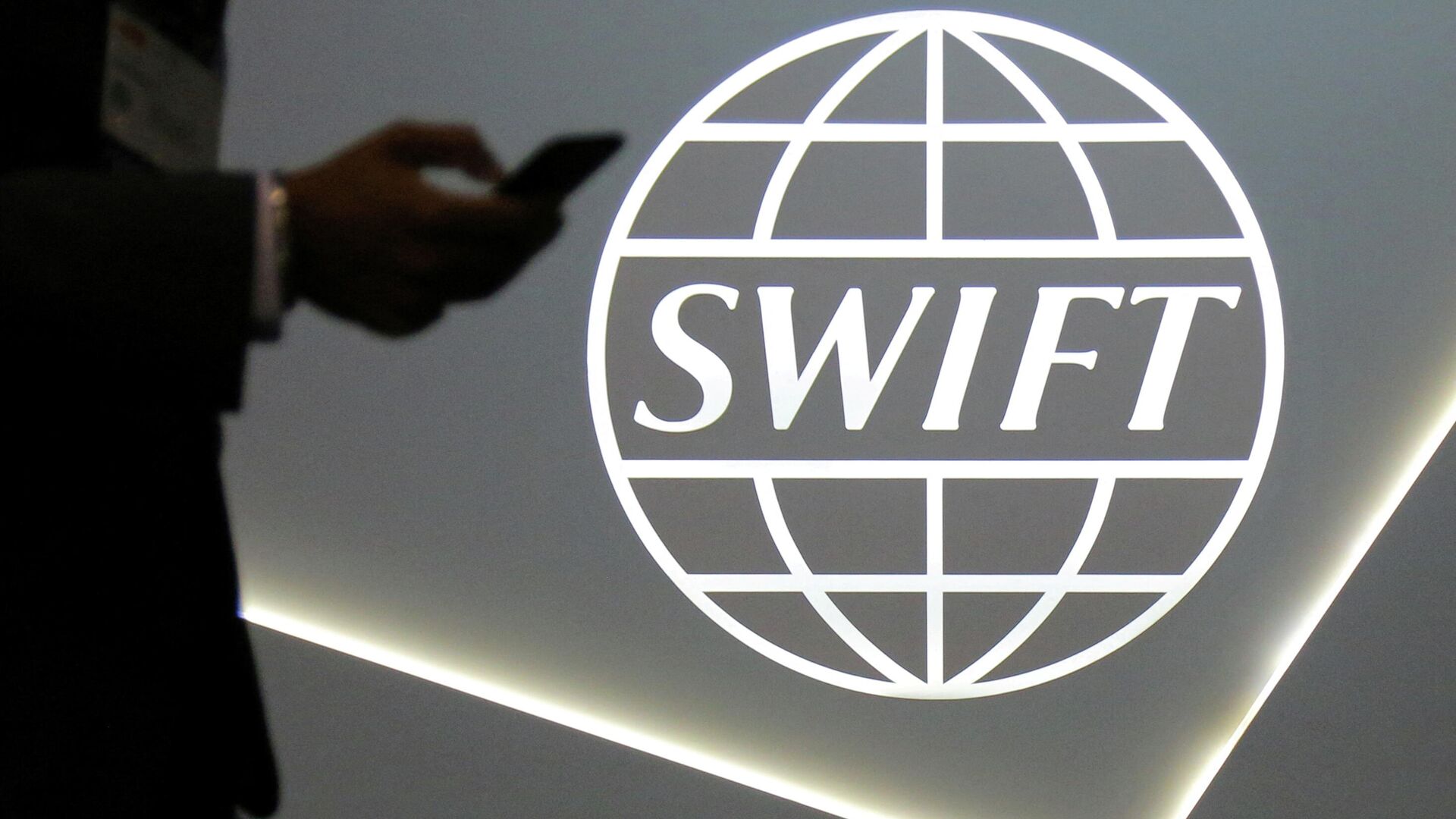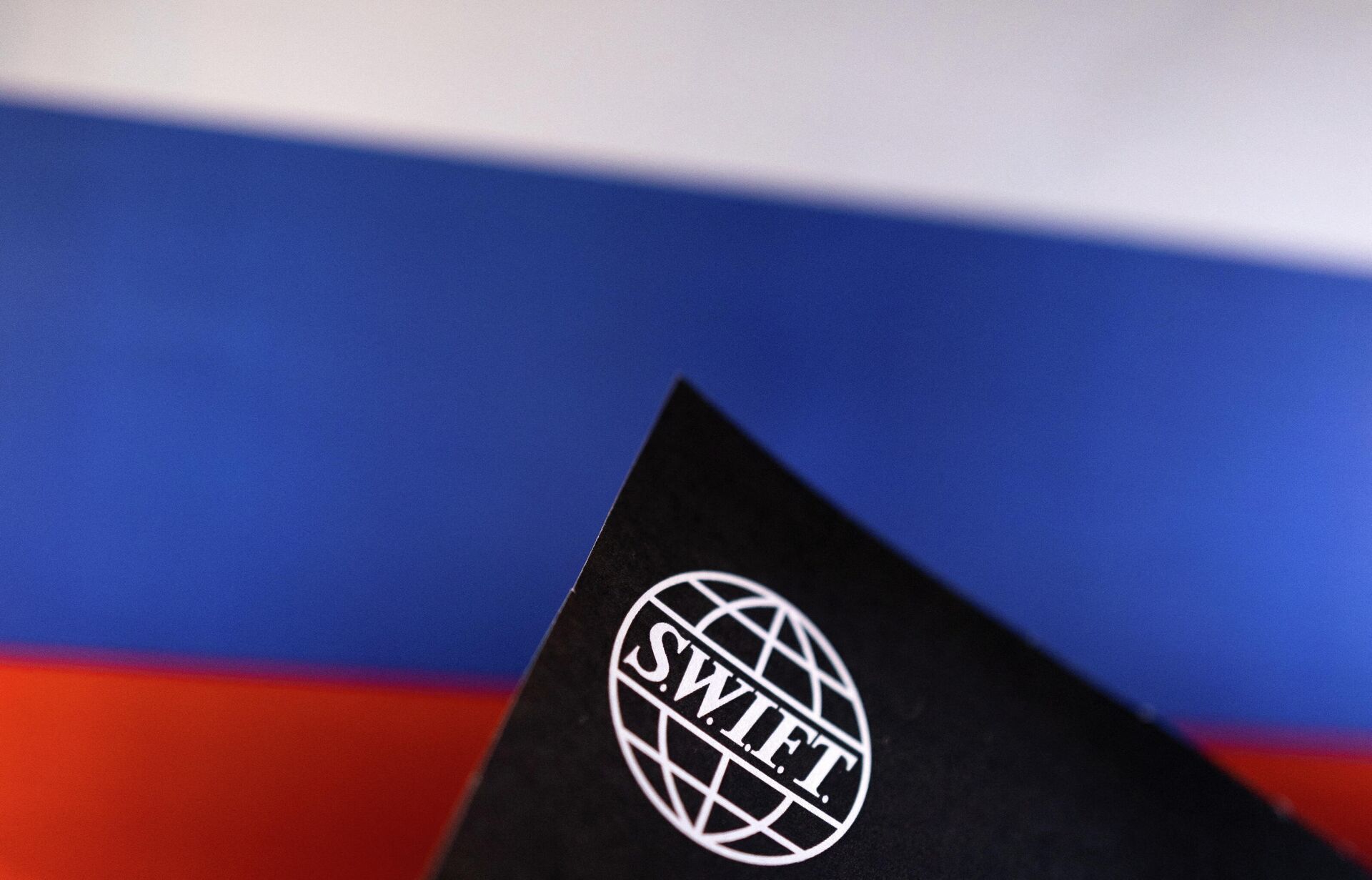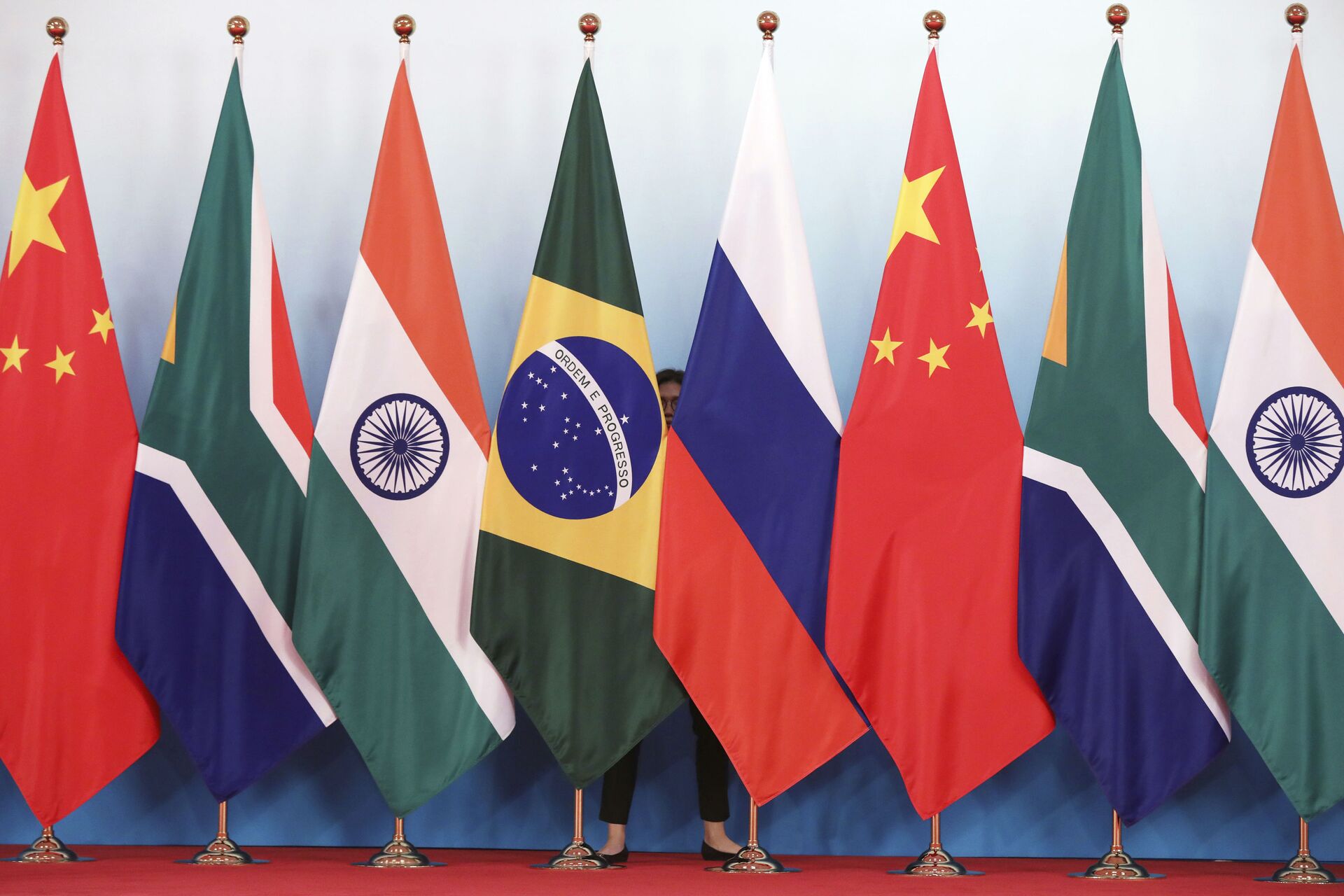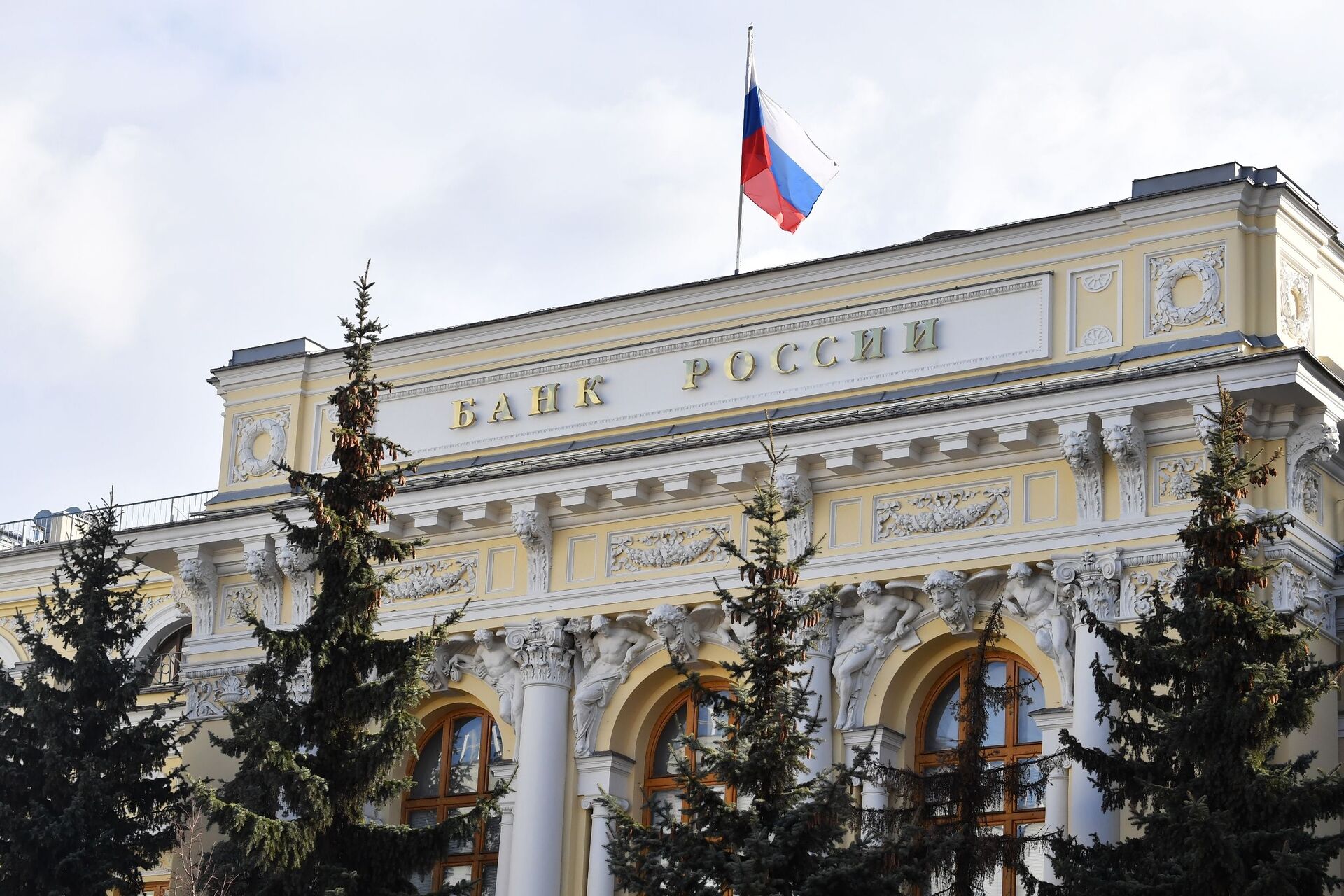How Russia's SWIFT Ban Could Backfire on West & Pave Way for Alternative Payment Systems
15:14 GMT 27.02.2022 (Updated: 15:24 GMT 28.05.2023)

© REUTERS / Chris Helgren
Subscribe
All Russian banks already subjected to sanctions will be disconnected from SWIFT, European Commission President Ursula von der Leyen announced on Saturday. The EU, the UK, Canada and the US agreed to implement the measure over Russia's "special operation" to "de-militarise and de-nazify" Ukraine.
"The removal of Russian banks from SWIFT means that while transactions can continue to take place the means of communicating have been rendered slower," says Suranjali Tandon, assistant professor at a Delhi-based National Institute of Public Finance and Policy. "In order to predict the impact, it is important to assess the number of banks that currently use SWIFT and the size of transactions undertaken through these."
The Society for Worldwide Interbank Financial Telecommunication (SWIFT) is a Belgium-based independent organisation that serves as an internal messaging system between over 11,000 banks and financial institutions in over 200 countries. Several major Russian banks, including Sberbank and VTB, could be disconnected from the system in the coming days. The Western leaders have also committed "to imposing restrictive measures that will prevent the Russian Central Bank from deploying its international reserves in ways that undermine the impact of our sanctions."

Swift logo is placed on a Russian flag are seen in this illustration taken, Bosnia and Herzegovina, February 25, 2022.
© REUTERS / DADO RUVIC
Russia’s Vnesheconombank (VEB) stated that having been disconnected from SWIFT, the nation will switch to the financial messaging system (SPFS) of the Russian Central Bank and alternative channels.
"In 2014, Russia had already initiated a switch to its alternative payment system called SPFS," says Tandon. "To the extent that these banks are used for cross border payments, the impact of the current sanctions will not have the intended impact."
According to the Central Bank of Russia's website, at least 331 banks, both domestic and foreign, are listed as the SPFS system users.
"Russia's withdrawal from SWIFT does not pose a threat to our internal settlements, stimulates the spread of the ruble as an international currency and at the same time reduces the possibility of destructive control by the West of our settlement operations," Andrey Klimov, head of the Federation Council Commission for the Protection of State Sovereignty, told the press on 27 February.
At the same time, the removal of Russia from SWIFT will slow down exports, imports and capital flows between the country and its partners. This will backfire on states, including those within the EU, which maintain trade or are dependent on energy supplies from Russia, according to Tandon.
"Disruptions in supply caused by payment glitches can have significant consequences for the trading partners," she explains. "Moreover, foreign companies operating in Russia will also be adversely affected."
According to international observers, the situation is exacerbated by the fact that the world's economy is still fragile due to negative effects of the COVID pandemic and accompanying lockdown measures. Meanwhile, the US and European economies are suffering from soaring inflation with growing energy prices threatening to accelerate it even further. In addition to that, the forthcoming increasing of interest rates by the US Federal Reserve may prompt a wave of debt crises among third world economies, according to the IMF prognoses.
Could New Payment Systems Challenge SWIFT's Dominance?
It cannot be ruled out that Russia's switch to its own financial messaging system could encourage other nonaligned nations to seek an alternative to the Western-led transaction systems which may eventually "challenge SWIFT’s dominance in international financial markets," according to Christopher Bovis, professor of international business law at the University of Hull.
Big blocs could also be used as platforms for alternative transaction systems. One of them is BRICS (Brazil, Russia, India, China and South Africa) which has a combined population of 3.23 billion people, or over 40 percent of the world population.

Staff worker stands behinds national flags of Brazil, Russia, China, South Africa and India to tidy the flags ahead of a group photo during the BRICS Summit at the Xiamen International Conference and Exhibition Center in Xiamen, southeastern China's Fujian Province, Monday, Sept. 4, 2017.
© AP Photo / Wu Hong
BRICS should create their own payment system, suggested the head of the Russian Union of Industrialists and Entrepreneurs Alexander Shokhin on 25 February. This option is quite viable under the condition of growing sanctions pressure against Russia, according to Sergio Rossi, professor of macroeconomics and monetary economics at the University of Fribourg, Switzerland.
"This system might provide a valuable alternative to the SWIFT payments system," Rossi says. "It could also induce the creation of a common currency for the BRICS countries, to be used for the settlement of their foreign trade only, each participating country continuing to use its own national currency for all its own domestic payments."
Moreover, "the possibility of BRICS countries establishing an autonomous payments system in competition to SWIFT has been already in motion for some time," according to Bovis.
"However, it depends on the political appetite of BRICS countries to create such a system at such a moment in time," he remarks.
When it comes to payments in national currencies, many European and Asian players would be interested in creating a payment mechanism allowing such settlements, "because all of them have an increasing volume of trade with Russia, on both commercial and financial grounds," according to Rossi.
Russia has been adopting measures for de-dollarisation of its economy for quite a while, shifting to settlements in national currencies with Asian, Middle Eastern, and Latin American players, including China, India, Iran, Turkey, and Venezuela.
"If such a payments system were to be created, it could be used to circumvent the sanctions and indeed the latter may accelerate the creation of this mechanism," the professor of macroeconomics notes.
Will China & Russia Team Up for Joint Payment System?
China is not sitting on its thumbs either: Beijing has developed the Cross-Border Interbank Payment System (CIPS), its own alternative for SWIFT. Having been launched in October 2015, CIPS grew 80 percent in value terms in 2018. In 2019 CIPS reportedly processed 135.7 billion yuan ($19.4 billion) per day. For comparison's sake, SWIFT processes around $5-$6 trillion daily. However, China's cross-border interbank system is continuing to gain steam.
"Russia and China have already explored synergy in developing alternative payment systems. Recent sanctions may encourage the adoption of a joint payment system," says Suranjali Tandon.
Bovis and Rossi also believe that under the current circumstances, the possibility of Russian financial institutions joining CIPS is high.
"The Western sanctions against Russia will certainly accelerate the latter’s access to CIPS, as far as Russian foreign transactions are or can be denominated in the Chinese currency, that is, the renminbi," says Rossi. "It is even much more likely that Russia and China will join their forces to set up a joint, two-currency, payments system, through which all transactions denominated in either the Russian ruble or the Chinese renminbi will be carried out electronically with a real-time gross-settlement protocol, which is the IT standard in Western payments systems, because it reduces settlement risks for all parties involved."
According to Dr Alexander Azdagan, China also has certain geopolitical reasons to team up with Russia as the US and its NATO allies are continuing to exert pressure on the People's Republic over Taiwan, which is seen by Beijing as an unalienable part of the country.
"The tension over Taiwan is an incentive for China to ally itself more with Russia," says the geopolitical analyst. "This is a very emotional issue for the Chinese. The more geopolitical issues, international relation tensions and commonalities that Russia and China have or would start having these commonalities, the more incentive it would be for China to move slowly toward Russia."



